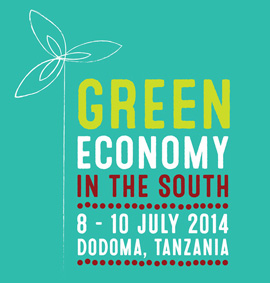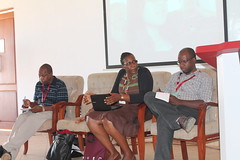by Francis Massé, PhD Student, Department of Geography, York University
A week after the Green Economy in the South conference, many of us have had the time to reflect on what was discussed, presented, and debated. Like many who attended, I was fortunate enough to be able to take time to do some travelling in Tanzania in the company of new friends and colleagues through the connections made in Dodoma. Some very productive conversations were had. Indeed, this is an important aspect and outcome of the conference that should not be overlooked as the relationships and connections made that subsequently allow the conversations and ideas from the conference to continue and extend themselves outside of the conference venue have an unknown value in and of themselves.
Hopefully they can take hold in some meaningful way through our work whether it be research, teaching, policy or otherwise. Looking at the historical roots of the conference itself, I think it is evident that the series of conferences of which Green Economy in the South is a part of has succeeded in developing and continuing the conversation looking at the links between capitalism and nature.
More theory or less theory? Solutions? – thinking about outcomes
Time away from Dodoma has allowed one space to think. As was mentioned by Guiseppe Cioffo in the closing plenary, I also think that some of the discussion might have benefited from a deeper engagement with theory.
Of course this sets off the alarm on the theory vs. policy debate, a debate which I do not want to necessarily engage with as I think we need to move beyond the theory/policy binary to acknowledge how they complement and contribute each other. Theory helps us to further understand the issues we are interested in and keeping policy in mind helps guide our research and keep it relevant in the hopes of contributing to some modicum of positive change. Not everyone will agree with this and maybe a panel on thinking through the theory vs. policy debate in the context of the green economy at the next conference in this series could be a productive addition.
With that said some attention to the “outcomes” of the conference is warranted as calls for solutions were made alongside the calls for more theoretical engagement. Solutions is always a key word and a hot topic at conferences like Green Economy in the South and its forebears, as with our own individual research as well. Indeed, this very discussion was had in the closing plenary as well as many of the individual panel sessions. What is the role of a conference such as the Green Economy in the South? Is it to provide solutions to the problems created by the “green economy”?
Without trying to be cynical, I am not sure that it is and I don’t think that this or any conference should be judged on that criteria. This is not to shirk away from the responsibility of doing research that is policy relevant. Indeed, speaking specifically as a researcher and aspiring academic I strongly believe that we should aim to make a difference, as should any conference. Yet, making a difference is a process and this conference is one step in this process. Our individual research and professional work can also be seen in this light. One individual research project may not have a direct influence on policy of programs on the ground. Yet as part of a larger body of knowledge and work engaging with the same or similar issues, that research project might indeed contribute to some positive change in some direct or indirect way. I am sure we have all heard this before and many of us probably gain motivation from this when we might otherwise question our research and writing efforts. So why not think of the conference in the same way, as part of a broader and continuing conversation and body of work, not as a standalone event.
At any rate it is too early to tell what the “outcomes” of the conference are, but if the last week is any indication, the conversation surrounding the green economy and how capitalism and nature are interacting has not slowed down since the conference’s end, but has instead been re-charged and re-invigorated thanks to the many conference participants, their formal presentations, and the many informal conversations had on the side. As Nancy Rushohora wrote in another blogpost, the conference has also been instrumental to young researchers, such as myself. Perhaps another “outcome” is to echo what Dan Brockington said in the opening plenary: this conference and the series that it is part of is helping to put the green economy and the problems with it in the spotlight. It is also helping to bring attention to and give legitimacy to the work of critically engaging with it. The conference does not stand alone, but is part of something bigger.
What about policy makers?
Constant questioning of the relevance of research, especially academic, with regards to policy and solutions is all too familiar for many of us who were in Dodoma last week. Perhaps we ourselves are the worst at this. But what about the responsibility of the policy makers and program managers who are ostensibly tasked with implementing green economic projects? As the conference organizers reminded us, policy makers and others were invited to the conference, but where were they?
The question of relevance and policy oriented is not a one-sided affair and just as academics and researchers need to be held accountable for the relevance of their work, those in the policy or program management field have a responsibility to engage with our work. While much of our work is critical, it is not simply critique for the sake of critique; it is informed critique and while our presentations, papers, and articles may not outline policy solutions per se, there are lessons to be learned from our work and (perhaps unfortunately) we cannot force relevant policy makers, REDD(+) program managers, or NGO executives to read and engage with our work (this is of course setting the political economy of publishing and issues of access aside. Making every effort to make our work easily accessible is, however, a responsibility we should take seriously). This reminds of the book Conservation is our Government Now by Paige West when she writes that despite the plethora of ethnographic work done in Papua New Guinea (and elsewhere) such work is not read by those international NGOs implementing cookie-cutter projects there. Perhaps if they had read some of that work many of the problems that beset the conservation program there might have been avoided. Or perhaps if our work is read, it is ignored, which is something we cannot control.
A week after this conference I have had time to reflect and the outcome for me has been one of re-invigoration, of making new connections and collaborations, and of realizing the research on the Green Economy is needed and worthwhile. What will the results of this be? That we cannot answer, but, assuming I am not the only one who has come away from the conference feeling this way I think we can call it a success.



